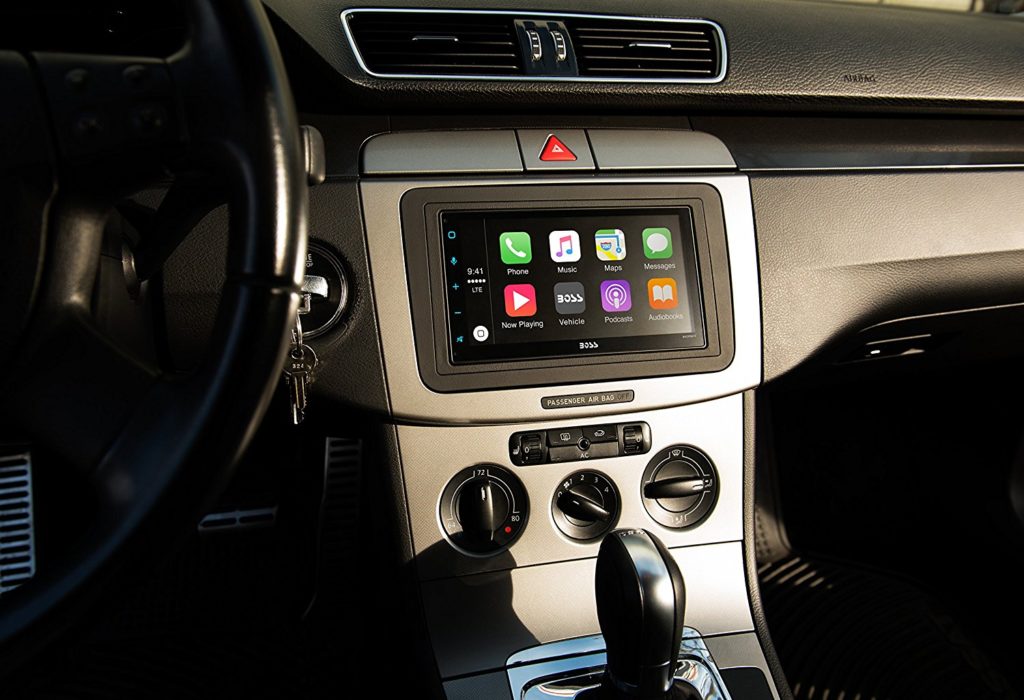Why Apple must launch an in-car audio system

Why wouldn’t Apple want to put clever HomePod audio speaker systems in your car?
In car audio and entertainment systems are incredibly popular, so much so that Apple has spent years attempting to develop its iOS-compatible CarPlay system car and audio manufacturers can use to put iTunes inside cars. How can it improve on this?
Like HomePod, but for cars
Apple has a chance to do something interesting here. Everyone knows the company has something special in the audio technologies inside HomePod, that’s why so many people (including me) appear to have been so very impressed by its high-quality music playback.
Apple really has cracked it in terms of delivering a streaming audio playback system capable of doing justice to the music it is playing. It’s an ideal partner to Apple Music.
It’s also important to note the company’s claim that it has been developing HomePod for six years. This reflects a level of technology investment that logically suggests the company hopes to build a range of audio systems, not just one. Imagine if those processor-based speakers gave you the best music possible in your car? (And on your Mac).
Why not? After all, if Apple can create an outstanding smart home audio system, why wouldn’t it want to create other similar systems for use elsewhere? AirPods, HomePods, why not CarPods?
Smarter smart cars
Apple has been working away at cars for years.
We all know this
Apple doesn’t yet have a car to put on the road, but it is testing them. The challenges in making a smart car may have forced Apple to change its original strategy, or to delay it, but it’s still going to want to ensure its tech has a place in next-generation motors. That’s just common sense.
We know manufacturers are working to develop their own smart cars. We know this is a challenging task. We also know manufacturers are somewhat unwilling to work in close partnership with the big technology firms, so they don’t end up becoming assimilated by those partners.
Apple knows this too, and while it has close connections with many in the car industry, and there are some sketchy claims it may be cooperating on a top-secret project with CDO Jony Ive’s favorite car brand, Aston Martin, we know that the chance of an Apple Car (or Apple designed car) hitting the road in the near future is really, really small.
We do know that Apple is working with auto makers to put CarPlay inside vehicles, Subaru, for example. And Hyundai, Toyota, Mitsubishi, Mazda, Kia, Ford, Honda, Lexus and many more.
You can also get CarPlay compatible after-market kits from the likes of Alpine Electronics and others.
What about Apple Music?
Apple’s smart car adventures can wait. In the here and now, what can Apple provide that existing in-car audio suppliers cannot? The answer appears to be Apple Music.
When it comes to HomePod, Apple CEO Tim Cook says:
“We think one thing that was missing from the market was a quality audio experience, a very immersive audio experience. Music deserves that kind of quality as opposed to some kind of squeaky sound.”
That same logic certainly applies in a car, but provision of top quality music playback isn’t the only reason Apple may want to develop a streaming audio playback system for vehicles.
The bandwidth challenge
Like every firm involved in the race to put smart, autonomous vehicles on the road, Apple knows it must figure out problems around mobile bandwidth.
You see, there’s only so much bandwidth and the control and command signals required to ensure autonomous vehicles do the right thing and don’t cause accidents because their connection blips out are critical. (Though some countries will probably prioritise pedestrian safety less).
In order to trust such vehicles once they are on the road, we need to resolve problems around mesh networks and reliable connectivity.
Vehicles cannot be allowed to go out of control at a busy intersection just because mobile network congestion delayed the warning messages.
While the data that needs to be shared won’t be huge in MB terms, the need to ensure it is transmitted accurately and in real-time is a critical challenge before these vehicles can go mainstream. That’s why MWC 18 saw discussions around app slicing, 5G, mesh networking and more – the industry knows it has to figure out these matters before the IoT becomes real.
Apple knows this too.
Meanwhile, we know Apple to be working on autonomous systems. Cook’s told us so.
On the road
Testing connectivity in moving vehicles is challenging – you don’t want to test it in life or death scenarios, but you do need to create a stable data framework capable of supporting autonomy.
That’s where streaming audio comes in.
If Apple can figure out how to solve the network connectivity challenge of streaming small music files consistently in moving vehicles, (and using Siri), it can then apply those lessons to ensuring other smart car challenges are met, such as providing vehicles with accurate situation management commands when they are driving along busy roads.
The fact that the passengers in the back will (I imagine) be able to enjoy those all-you-can eat Netflix-style Apple Movies on their seat-mounted Apple TV-like in-car displays is just an added bonus.
[CP_POLLS id=”30″]




